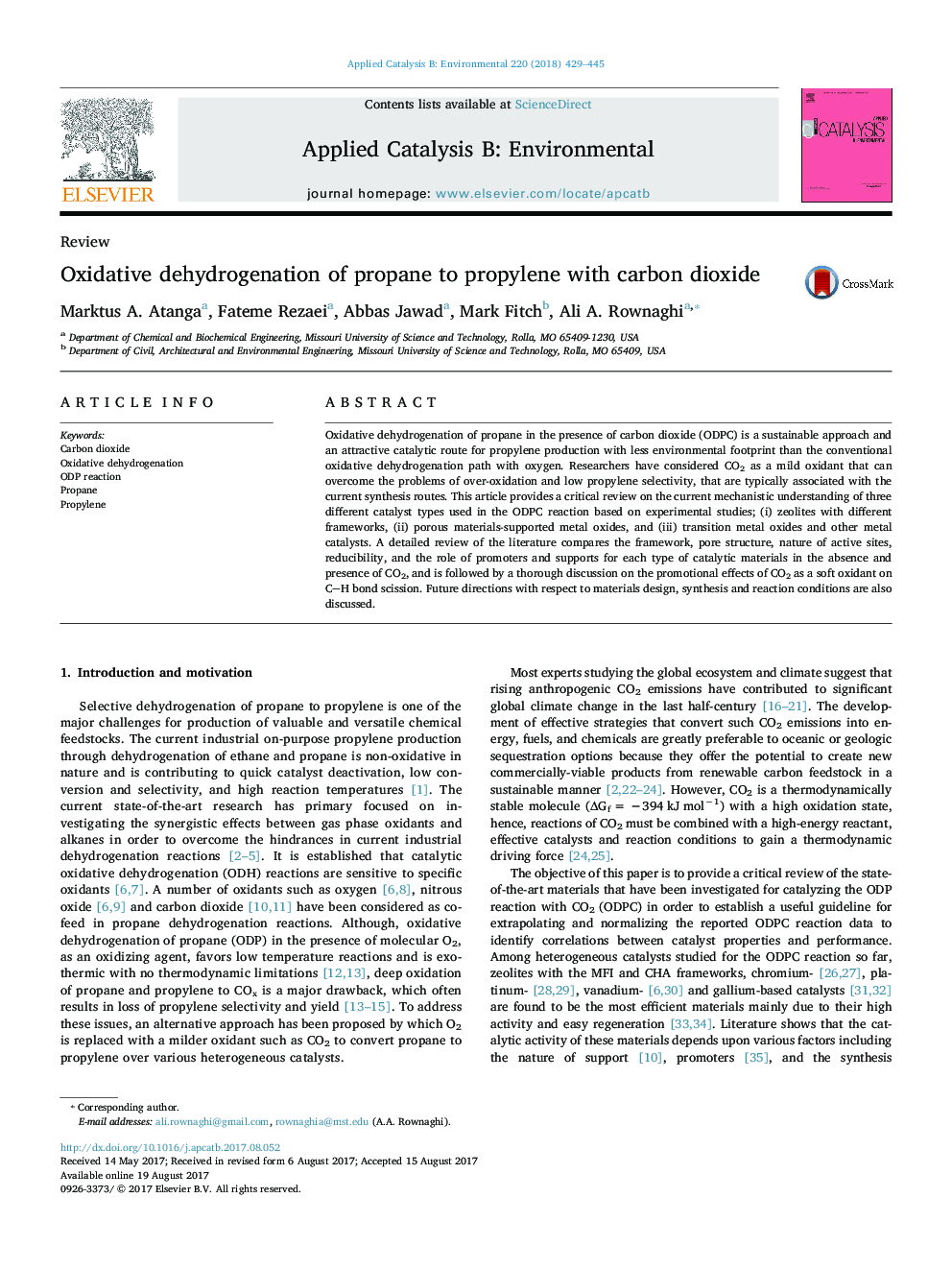| Article ID | Journal | Published Year | Pages | File Type |
|---|---|---|---|---|
| 6453631 | Applied Catalysis B: Environmental | 2018 | 17 Pages |
â¢Utilization of CO2 as a soft oxidant for oxidative dehydrogenation of propane.â¢Thermodynamic advantages of the dehydrogenation of propane in the presence of CO2.â¢Oxidative dehydrogenation of propane over zeolites with different frameworks, porous materials-supported metal oxides, and transition metal oxides.â¢Effect of process conditions on dehydrogenation of propane in the presence of CO2.
Oxidative dehydrogenation of propane in the presence of carbon dioxide (ODPC) is a sustainable approach and an attractive catalytic route for propylene production with less environmental footprint than the conventional oxidative dehydrogenation path with oxygen. Researchers have considered CO2 as a mild oxidant that can overcome the problems of over-oxidation and low propylene selectivity, that are typically associated with the current synthesis routes. This article provides a critical review on the current mechanistic understanding of three different catalyst types used in the ODPC reaction based on experimental studies; (i) zeolites with different frameworks, (ii) porous materials-supported metal oxides, and (iii) transition metal oxides and other metal catalysts. A detailed review of the literature compares the framework, pore structure, nature of active sites, reducibility, and the role of promoters and supports for each type of catalytic materials in the absence and presence of CO2, and is followed by a thorough discussion on the promotional effects of CO2 as a soft oxidant on CH bond scission. Future directions with respect to materials design, synthesis and reaction conditions are also discussed.
Graphical abstractDownload high-res image (251KB)Download full-size image
